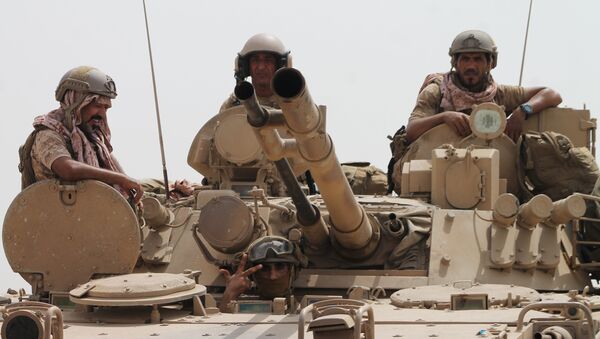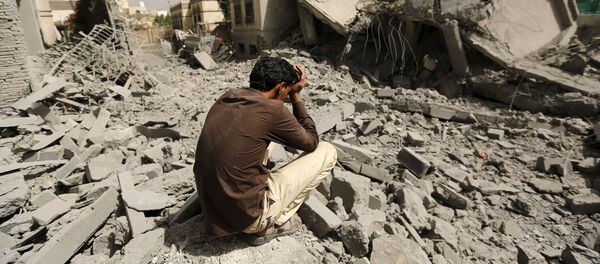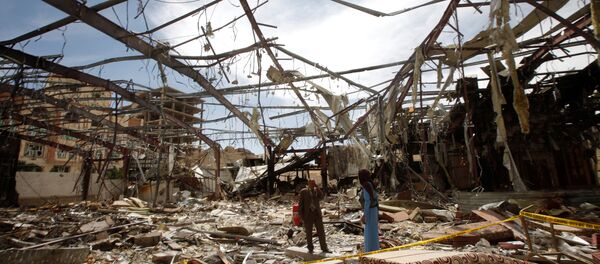"Attacks are being either specifically directed at civilians, in other words, individuals who are not targetable under the rules of law, or at the very least the attacks are indiscriminate in the sense that the attackers are not taking sufficient precautions in order to distinguish between combatants and civilians," Rona told Radio Sputnik.
"In either case, whether the attacks on civilians are deliberate or merely negligent, the result of a failure of precautions, it's a war crime."
The Saudi-led coalition began its bombing campaign in Yemen in March 2015, with the aim of restoring ousted President Abd-Rabbu Mansour Hadi to power.
Shi'ite Houthi rebels had forced Hadi to resign after they seized control of Sana'a, Yemen's largest city, and the presidential palace. Hadi retracted his resignation after escaping to the main southern city Aden, and later arrived in the Saudi capital Riyadh in March 2015.
Among civilian targets hit by the Saudi-led coalition are medical facilities run by humanitarian group Medecins Sans Frontieres (MSF, or Doctors Without Borders), and last month a funeral in Sanaa, where at least 140 people were killed.
In August the UN reported that over the first 18 months of the war in Yemen, at least 10,000 people were killed. The real number is much higher as many people have died and been buried without an official record because there are no medical facilities.
Rona said that the US could also be guilty of war crimes, depending on the extent of its involvement in the coalition.
"While the Saudis seem quite clearly to be guilty of war crimes, the Americans may be guilty of war crimes."
"I'm not sufficiently appraised of the facts, but if in fact Americans are providing intelligence with the knowledge that the Saudis are committing either deliberate attacks on civilians, or attacks that fail to distinguish between civilians and combatants, then Americans too could be held criminally liable for aiding, abetting and assisting in the commission of those war crimes because they have reason to know that those crimes are occurring," Rona said.
Under international law, the US is permitted to conduct a war crimes trial in the first instance. If it doesn't, the Geneva Conventions regulating armed conflicts actually require states to either prosecute or extradite for prosecution people who have committed "grave breaches" of the Conventions.
"Since Saudi Arabia, Yemen and the US are not party to the Rome Treaty that establishes the International Criminal Court, that order would have to come from the UN Security Council," Rona said.
It remains to be seen if the US will face censure for its actions in Yemen or elsewhere. However, by pretending to the role of "world policeman," Washington has a particular responsibility not to commit human rights violations.
"The US, perhaps more than any other country cannot afford to develop a reputation for flouting the laws of armed conflicts because the US holds itself out to be not only a prime arbiter but a setter of standards," Rona said.
"We've seen time and time again, for example with the Bush administration's torture legacy, that when the US violates the law it opens the door to other countries giving rationalizations for doing the same thing. That not only undermines international human rights around the world, it undermines international peace and security."




